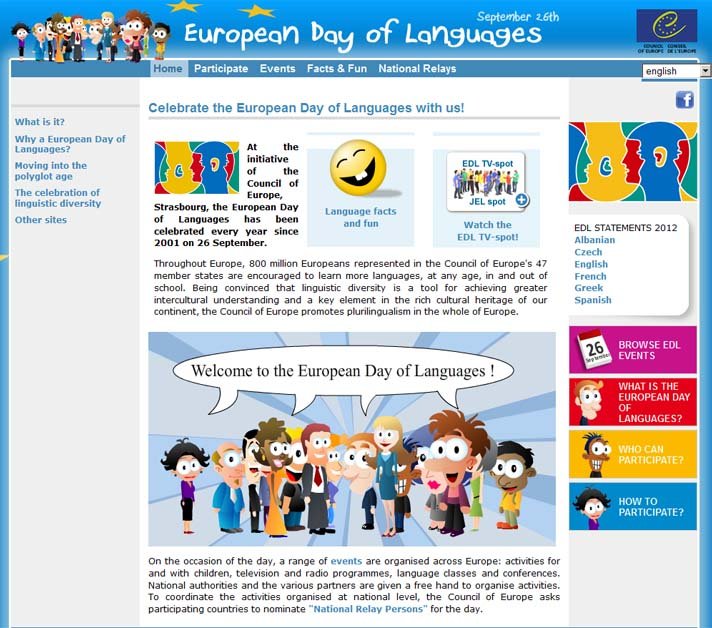It’s that time of the year again, the day to raise your flag for plurilingualism and intercultural understanding! Today, September 26, millions of people in cities all across the European Union will be celebrating the European Day of Languages. In honor of the 23 official languages of Europe and the more than 200 regional and migrant languages that are found there, Europeans will be promoting language learning in just about every way imaginable.
The purpose of this day is to focus on the role that learning new languages – at any age and stage in life – plays in fostering the sense of a European community in general, and a respect and understanding of other cultures in particular. This day was first designated in 2001 by the Council of Europe and the European Commission, which together organize several initiatives aimed at promoting language learning for students, exchange programs for people in business, and support for migrants who are learning the language of their new home, among others.
But aside from the great efforts to provide resources and support for people learning foreign languages, it’s also a day to just love languages in general. And Europeans have found so many different ways to do that. You can toast to language at a themed cocktail bar in Budapest, talk it up at a ‘speak-dating’ event in Prague, treat it to a foreign language poetry reading in Cardiff, or share a linguistic bath (not literal, of course) at one of the many participating libraries in Berlin.
But before we get carried away, this day is about more than just living it up with languages for a brief, exciting affair. Indeed, the teaching and learning of new languages has become a major priority and source of collaboration for both the European Commission and the Council of Europe. Far from being just another fun elective in school or a nice resume item later, multilingualism is considered an essential element of what makes the European Union a “union” at all. The ability to communicate with and understand neighbors who live and work so close goes a long way toward establishing a common point between cultures and fostering a true sense of community that goes beyond state boundaries.
And the same can be said for any place around the world. Each region has its own dynamic between various languages and cultures, and different modes of interaction and exchange. But every place has a plurality of linguistic heritage. So even while we promote a love of languages in the present, and the goal of greater cultural exchange in the future, we’re also honoring the linguistic richness and diversity of our past.
But why let Europe have all the fun? If you celebrate multilingualism in a country or region outside of Europe, or if you’re in the EU and have found your own way to celebrate, leave a comment and let us know how you’ll be loving languages today!








